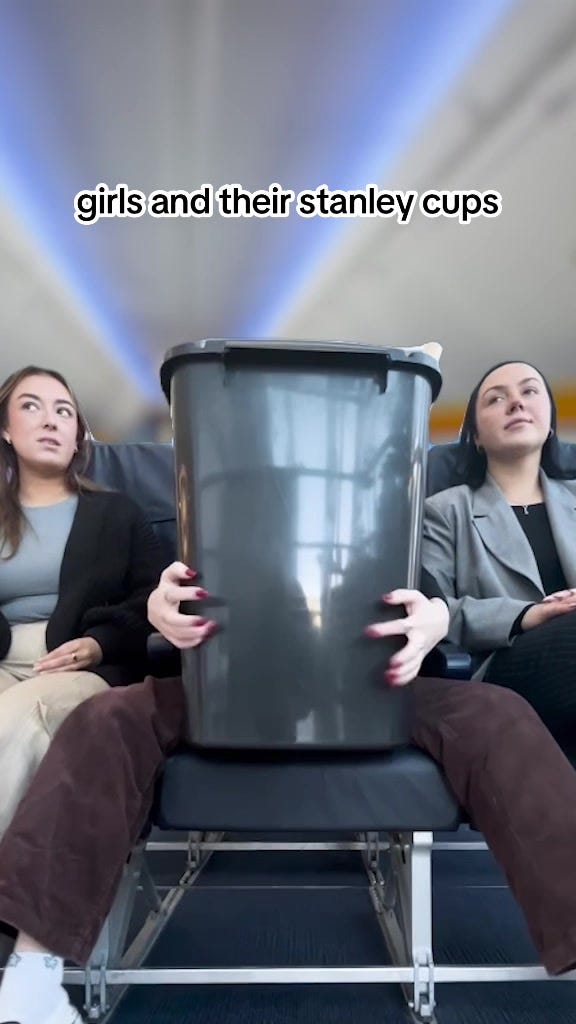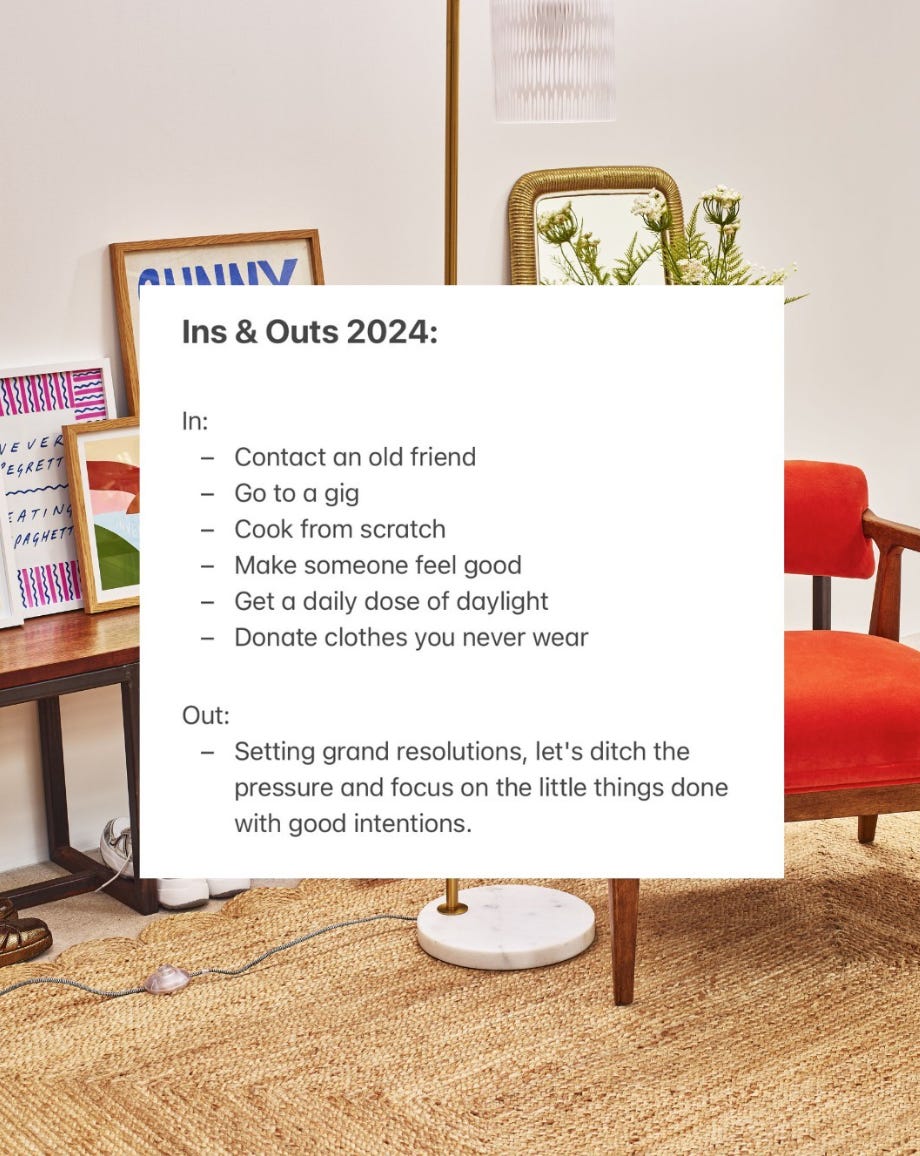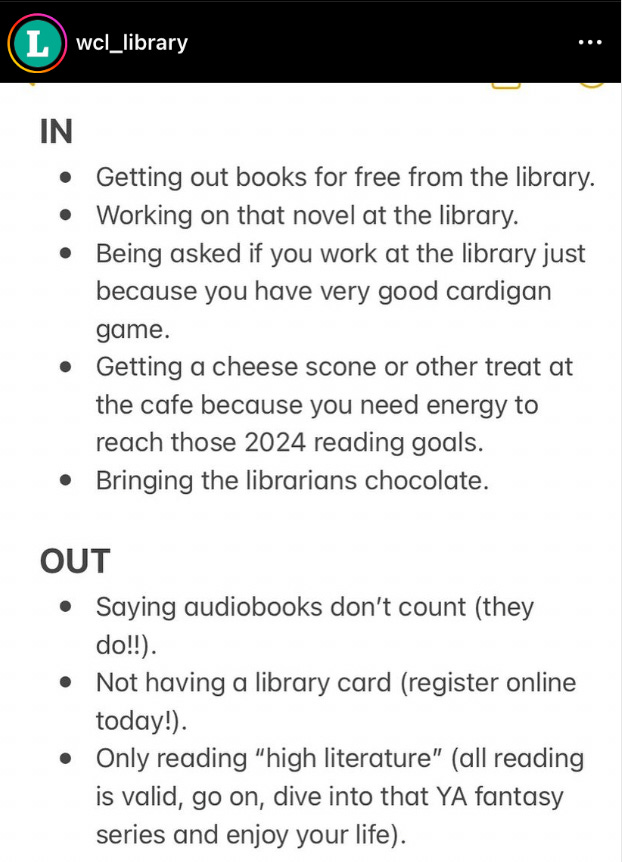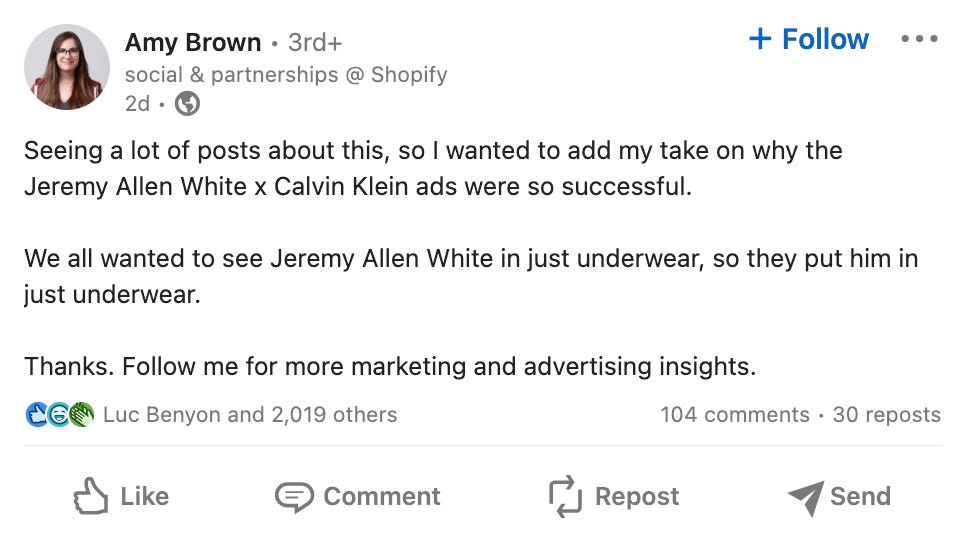Everything is a meme now
In for 2024: brands being a bit more weird, out: another million copycat posts that say absolutely nothing
People say comparison is the thief of joy, but if you’re online in 2024, it’s actually repetition.
Last night as I read what felt like my five thousandth ‘2024 ins and outs’, I started to wonder, why does anyone bother? Do I actually enjoy social media, or do I just need a daily digital cigarette break to feel like a functioning human being?
One of the reasons platforms like Instagram and TikTok are so compelling is because they tip you, face-first, into a world of barely filtered madness. You’re just as likely to get dubious diet advice or Monday fit checks as you are some of the most profound, personal confessions imaginable. Personally, I’m enjoying Lib & Gabe’s ongoing ‘doing Rasputin until we’re snatched’.
 Tiktok failed to load.
Tiktok failed to load.Enable 3rd party cookies or use another browser
Part of the appeal – and this is true for TikTok in particular – is seeing dozens of different people’s take on the same thing. It’s compelling and hypnotic, and it taps into the joy of memes – which are about seeing the most mundane, repetitive things twisted into the weirdest kinds of humour.
But in the internet of 2024, that repetition is also the problem. There’s only so many times you can see the same visual framework, watch the same joke setup, or hear the same snippet of a track before you start to feel mildly deranged. It’s all too easy for online content creators to create another pointless version of whatever vapid meme is in vogue. For footnotes, see thousands of influencers letting the world know that, for 2024, ‘no sleep’ is out, but ‘regular facials’ are in. Profound.
And the curse of repetition is widespread across the internet. Brands have got wise to memes, and they’re intent on wringing them for all their worth. They’re looking at what everyone else is doing and then doing the same. Sometimes that makes sense; if all your competitors are building mobile-friendly e-commerce sites, then you probably need to think about that too. But memes are harder to get right.
Some businesses do an incredible job of being entertaining online – see Experiment’s Insta page for a brand that’s actually having fun. Or Yorkshire Tea taking the piss out of bland online content. Or the Museum of English Rural Life’s now-iconic big sheep. Or Wingstop’s lo-fi, chicken-themed memes. Or, for a real treat, Hobbycraft Wimbledon’s chaotic and genuinely joyous TikTok. Shout out to Ryanair as well for their deft use of topical humour.
But it’s hard to be funny, and brands often get it wrong. Or not so much wrong as completely unremarkable, which is arguably just as bad. At least if a company effs it up people are still talking about them. If it’s just intensely ordinary, you don’t even get that luxury.
Case in point, last week I bought the ugliest pair of shoes of my entire life (and I’ve got form in this area – not long ago I got the Clarks x Eastpak boots, which are essentially the bastard child of a Wallabee and a backpack. As one TikTok commenter noted: “When you have a hike at 3 but scuba diving at 4.”)
Anyway, I bought this second pair of gloriously practical shoes after watching just one eight-second video (proof that social media really does work). And, naturally, I assumed that Merrell – a company with incredible heritage, materials and design – MUST be doing something interesting on TikTok. Their ins and outs for 2024 had to be good - you know, ‘In: hiking shoes that magically zip together. Out: birds shitting on your head’. Instead, we got this:
And they’re not alone. Here’s Oliver Bonas, posting something that could have been posted by, to be honest, any other brand in the world:
In the ‘doing a bit better’ camp there’s Wild, at least staying on-brand, with a hint of saltiness about oat milk:
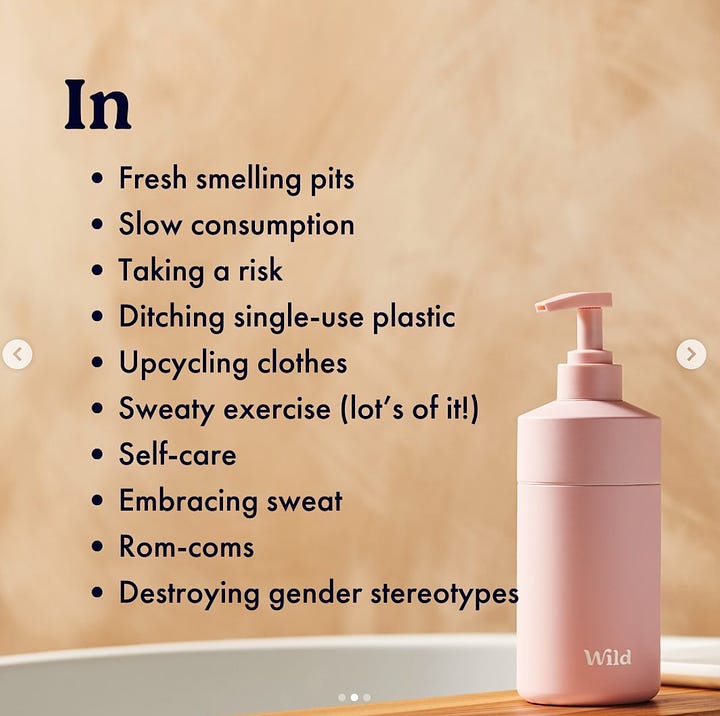

And Marmite, which does quite a lot better, particularly with its spiky little ‘Australian spreads’ comment:
Lastly, on a smaller scale, a bit of gentle, niche, bookish humour from Wellington City Libraries:
Now, some people like to get misty eyed over days of the internet past, even though they probably weren’t much better than today. Repetition came in its own form then - customised Myspace pages, for example, or Geocities sites. But it does feel like online culture has become pretty monotonous.
Influencers have their own, commodified image to maintain, so you can forgive them for cleaving to the language of wellness, or fashion, or self care. Brands do as well, of course, but they have vastly more resources, and pressure, to be creative.
Another fitness company telling us that ‘self doubt’ is out for the new year does nothing to separate them from the thousand other fitness brands saying the same. What we really want is a bit more inventiveness with language and imagery, and something that might actually stop my mindless scroll. And if you can’t be funny, you at least don’t have to be so deathly dull.
Things I enjoyed this week:
The ad industry getting aerated over the Jeremy Allen White CK ad. Pages of discourse generated, including by John Hegarty himself, the man behind THE Levi’s ad. Is it a radical feminist statement? Does it really have an idea? Is it objectification? Shopify’s Amy Brown has the answer:
New Theory wine, occupying the rarefied space of ‘fine craft wine’.
Rabbit Tech’s AI companion, with super Braun, analogue meets digital vibes. 10k units sold out within 24 hours.
And finding out that Rowse now serves honey in recyclable paper sachets.
If you missed last week’s newsletter, I read 200 trend reports and turned them into an UBER trend report. Apparently, aquamarine makeup is back, AI will soon book our holidays and all of us are just dying for a big sleep.






